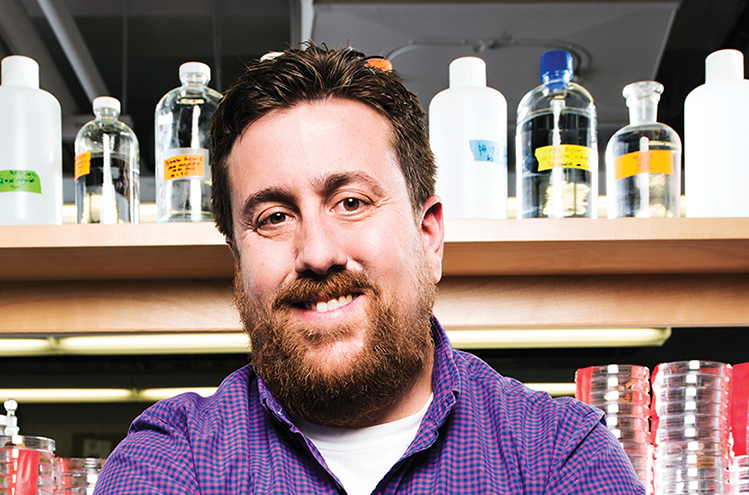Age: 36
Job Title: Assistant Professor, University of Alberta
Why He’s Top 40: His research in the field of responsive polymers has the potential to improve lives around the world. And he inspires others to look at the world with the same amount of curiosity and innovation.
What Do You Like Most About Edmonton?: “Believe it or not, I love the weather. I grew up in Florida. When I could, I moved up to Georgia Tech for graduate studies, but it’s still very hot. Then, I moved to North Carolina; it was still too hot. I came to Edmonton during minus 40 degree weather. It was perfect.”
Probably the most important thing that students learn in Michael Serpe’s chemistry class is the importance of curiosity and asking questions. Just because a lab project doesn’t result in an expected outcome doesn’t mean it is a failure. It might just mean they should look closer.
In 2009, a post-doctorate student was upset when her experiment didn’t turn out as predicted but, when Serpe checked it out, he got excited. The mysterious change in the colour of the student’s experiment led to the creation of a device that could potentially save lives. The device uses responsive polymers – long strands of molecules that can act like sponges, soaking up contaminants – to change colour in the presence of dangerous toxins in water, soil or even the human body.
“I try to teach my students this kind of mentality. So many times they come in and say ‘Well, this wouldn’t work,’ so they want to just move on. So, I try to get them to understand what actually happened,” he says.
Serpe and a group of students are working closely with TEC Edmonton to get a patent for the device, which currently can detect lead, cadmium, silver and naphthenic acids in water. Imperial Oil, Petro-Canada and the Centre for Oil Sands Innovations gave funding for the project with hopes the technology will detect and remove contaminants in the oil fields. And Serpe is the recipient of the Grand Challenges Canada Rising Stars in Global Health grant and the Petro-Canada Young Innovator award, which helped finance his innovative research.
